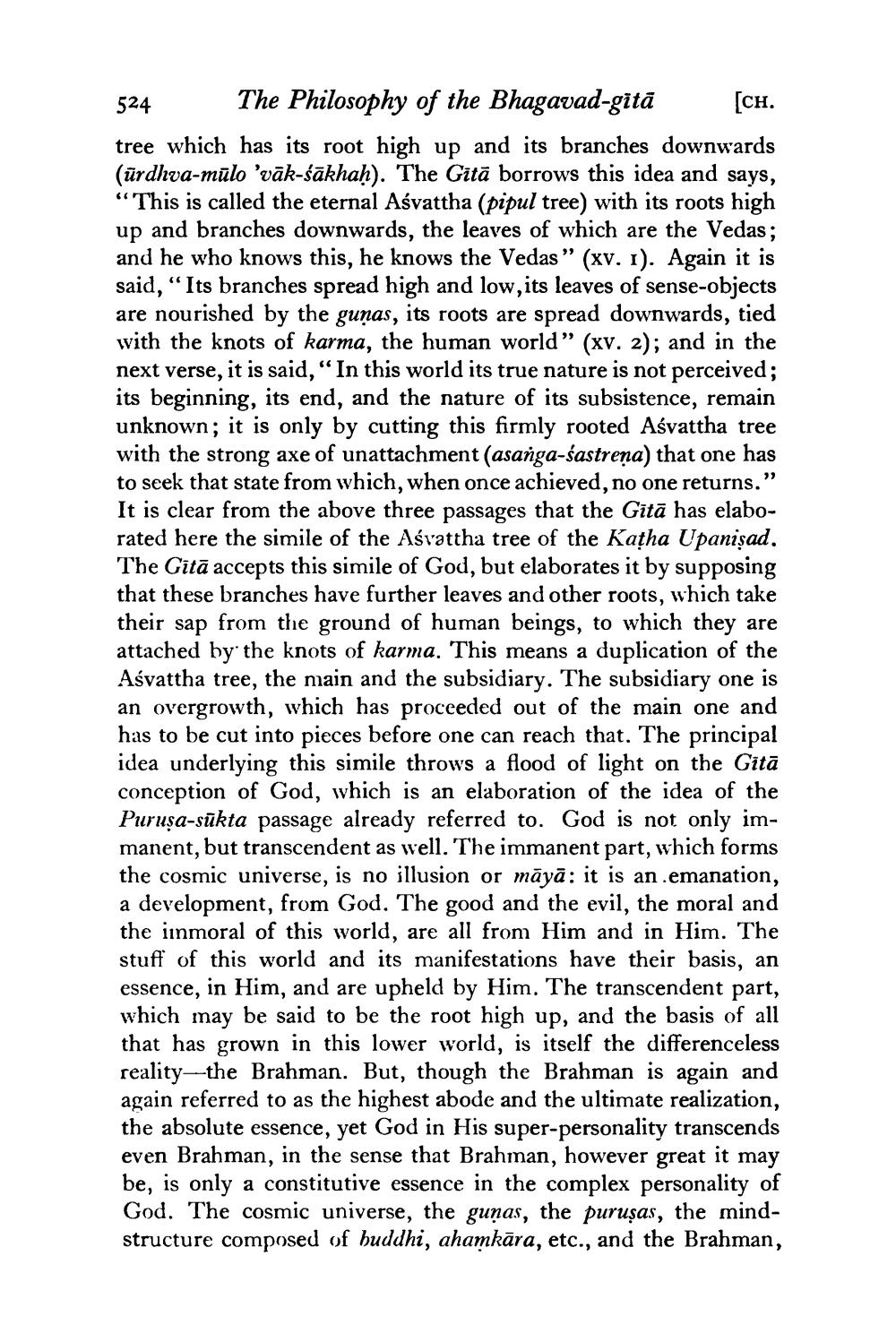________________
524
The Philosophy of the Bhagavad-gitā
[CH.
""
tree which has its root high up and its branches downwards (ūrdhva-mūlo 'vāk-śākhaḥ). The Gītā borrows this idea and says, "This is called the eternal Aśvattha (pipul tree) with its roots high up and branches downwards, the leaves of which are the Vedas; and he who knows this, he knows the Vedas" (xv. 1). Again it is said, "Its branches spread high and low, its leaves of sense-objects are nourished by the gunas, its roots are spread downwards, tied with the knots of karma, the human world" (xv. 2); and in the next verse, it is said, "In this world its true nature is not perceived; its beginning, its end, and the nature of its subsistence, remain unknown; it is only by cutting this firmly rooted Asvattha tree with the strong axe of unattachment (asanga-sastreṇa) that one has to seek that state from which, when once achieved, no one returns." It is clear from the above three passages that the Gitā has elaborated here the simile of the Asvattha tree of the Katha Upanisad. The Gita accepts this simile of God, but elaborates it by supposing that these branches have further leaves and other roots, which take their sap from the ground of human beings, to which they are attached by the knots of karma. This means a duplication of the Aśvattha tree, the main and the subsidiary. The subsidiary one is an overgrowth, which has proceeded out of the main one and has to be cut into pieces before one can reach that. The principal idea underlying this simile throws a flood of light on the Gitā conception of God, which is an elaboration of the idea of the Purușa-sukta passage already referred to. God is not only immanent, but transcendent as well. The immanent part, which forms the cosmic universe, is no illusion or māyā: it is an emanation, a development, from God. The good and the evil, the moral and the immoral of this world, are all from Him and in Him. The stuff of this world and its manifestations have their basis, an essence, in Him, and are upheld by Him. The transcendent part, which may be said to be the root high up, and the basis of all that has grown in this lower world, is itself the differenceless reality-the Brahman. But, though the Brahman is again and again referred to as the highest abode and the ultimate realization, the absolute essence, yet God in His super-personality transcends even Brahman, in the sense that Brahman, however great it may be, is only a constitutive essence in the complex personality of God. The cosmic universe, the gunas, the purusas, the mindstructure composed of buddhi, ahamkāra, etc., and the Brahman,




